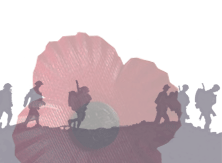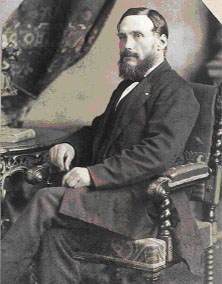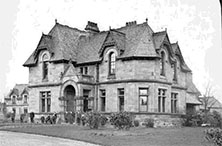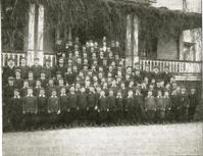The McWhirr Brothers
Their names will be remembered for evermoreThe lives of the McWhirr boys show how very different, and difficult, life was for poor people in Scotland in the early years of the last century. Their story also illustrates how Scotland pioneered social welfare through charities such as Quarriers Homes. The boys and their four sisters were orphaned in 1900. Relatives took in the girls. The boys - James, John, William and Thomas - were taken to the Quarriers reception centre and hostel at James Morrison Street in Glasgow. A Refuge for Children The charity was founded in the late 19th century by William Quarrier, a shoe retailer from Glasgow. Quarrier began looking after homeless children in 1871, opening a night refuge in Renfrew Street. He used charitable donations to buy land near Bridge of Weir, on which the Orphan Homes of Scotland were built. It was a complete working village that became known, and is still known, as Quarriers Village. Hopes for a Better Life James and John entered care in April 1900, followed by William and Thomas in June. James and William were placed on the sail-training "ship on land", the SS James Arthur, to train for a career in the merchant navy. This was a fully-rigged prefabricated brig set in concrete which boys lived aboard so they could learn seamanship. The crew only came "ashore" on Sundays to attend church. James and William both went to sea in 1903, the latter on the Celticburn, a four-masted ship owned by a Greenock merchant whose vessels visited India and San Francisco. Thomas and John lived in Cottage 22 before John was "reclaimed" by his now married sister and went to live with her in Johnstone. Thomas was one of 7,000 children sent by Quarriers to Canada, in the hope they would have better opportunities. Quarriers kept on sending emigrant children until 1936. Although the practice had started with good intentions, the exiles' own testimonies reveal mixed outcomes. Thomas returned in 1911 as an adult and worked as a farm labourer, a reserved occupation which meant he would not be called up. Brothers Grow Up When war started, James had left the merchant navy and was working in Glasgow as an engineer's storekeeper, while William was living in America. John had joined The Argyll and Sutherland Highlanders Special Reserve. Life had been cruel to James, the eldest brother. His first wife had died of TB in 1909 and in April 1915 he took ill with pneumonia and died in Glasgow's Western Infirmary, a civilian casualty of the limited treatment options available then. Having arrived in France in November 1914, John was seriously incapacitated, either wounded or suffering from illness, on 12 December. He was taken by ambulance to the Women's Hospital in Boulogne. He was evacuated by hospital ship to England and honourably discharged from the army in July 1915. When the Silver War Badge was instituted in 1916, John applied for one. Wearing the badge, inscribed "services rendered", demonstrated to civilians that the holder had already served overseas and was now physically unable to do so. He married and settled in Ayrshire. He died with his wife in 1942 when they were struck by a car at night as they walked on a country road in Fenwick, Ayrshire. The blackout of the Second World War claimed a survivor of the Great War. View original referenced text here: |
Images:
|
















